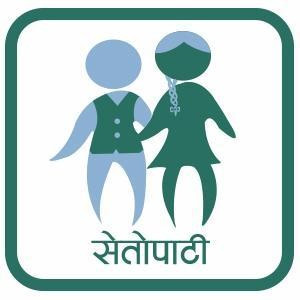The umbrella organizations of private and boarding schools in Nepal, PABSON and National PABSAN, have announced protests, expressing dissatisfaction over some provisions in the School Education Bill.
The School Education Bill is currently in the final stages of discussion in the Education, Health, and Technology Committee of the House of Representatives.
PABSON and National PABSAN have pointed out that although it is natural for private educational institutions, which contribute about 34 percent to the country's school education, to be more enthusiastic and optimistic, the proposed bill contains some impractical and unjust provisions related to private educational institutions.
They have mentioned that they have repeatedly submitted formal letters and memorandums to the Nepal government, the Ministry of Education, the relevant committee of the Federal Parliament, and major political parties, demanding the repeal or amendment of such provisions.
They have demanded the introduction of a private-sector-friendly, practical, just, and inclusive education law.
PABSON President Krishna Prasad Adhikari and National PABSAN President Subash Neupane issued a joint statement announcing the protests.
"We are not seeking confrontation with the state but a path of dialogue and cooperation. However, if attempts are made to strike at our professional existence and educational contribution, we will be compelled to explore all options for struggle," they said.
The two organizations have announced protest programs starting Thursday, putting forward five different demands.
These are the demands:
1) The term "full scholarship" should be removed.
2) The provision requiring schools to provide items not produced by them, such as uniforms, stationery, educational materials, and food (snacks) should be repealed.
3) The provision stating that schools registered and operating under the Company Act would be gradually converted to "non-profit" entities should be removed.
4) The authority to distribute scholarships should remain with the respective schools, and a transparent committee with the participation of municipal representatives should be formed to distribute scholarships.
5) Discriminatory provisions under Section 3 (a) of the Scholarship Act, Rule 10 (a) of the Scholarship Rules regarding 45 percent reservation scholarship system, and the discriminatory clause under the Amendment Act which states that only those who studied from class 6 to 10 in community schools are eligible to study under the CTEVT program in higher education must be repealed.
These are the protest programs:
1. On August 21, from 11 a.m. to 1 p.m., all principals will gather at Maitighar Mandala with banners, march to New Baneshwar Chowk, and return to Maitighar Mandala to hold a corner meeting.
2. On August 22, at 11 a.m., school buses across the country will assemble at chowks near their schools and drive around town.
In the Kathmandu Valley, school buses will parade around the 27-km ring road with black flags and banners.
At 1 p.m., a gathering will be held at Maitighar Mandala to picket/stage a sit-in at the Education, Health, and Information Technology Committee and the Federal Parliament.
3. On August 24, decisive protests will begin.






